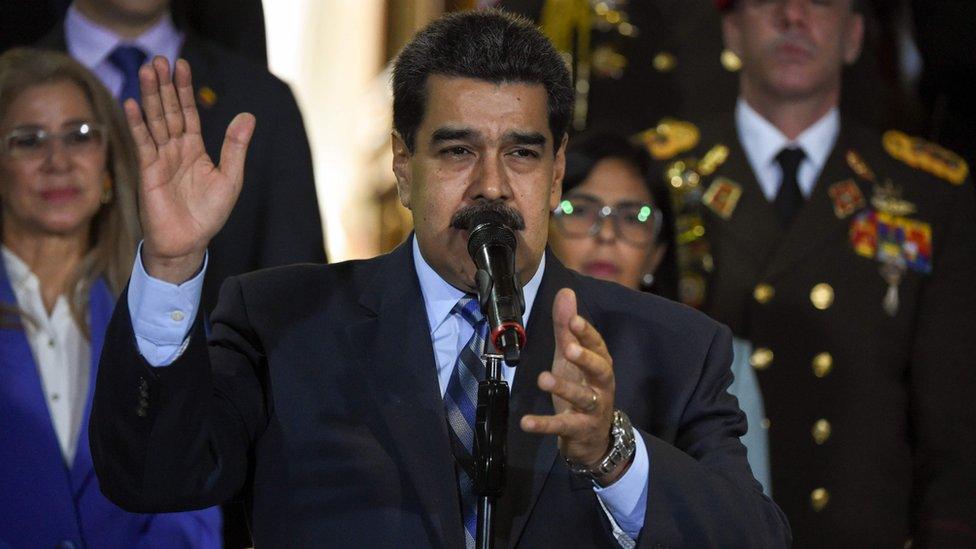'Tortured' Venezuela captain buried without wife's consent
- Published
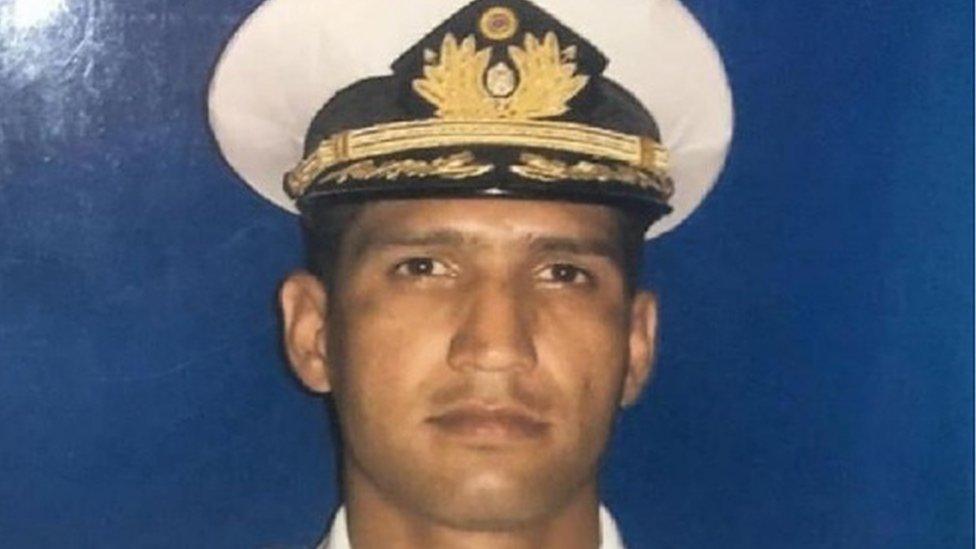
Navy captain Rafael Acosta died while he was being held in military custody
The body of a Venezuelan navy captain who died in custody on 27 June has been buried by government officials without his family's consent, his wife says.
Members of the Venezuelan security forces interred Capt Rafael Acosta's body in a Caracas cemetery.
Capt Acosta's lawyer said he died as a result of torture, and a leaked post-mortem report suggested he had been beaten and electrocuted.
He was being held over an alleged plot to kill President Nicolás Maduro.
What did Capt Acosta's wife say?
In a video message published on Twitter, Ms Pérez denounced "the illegal process" by which the morgue in the capital, Caracas, had handed over her husband's body to the security forces for burial without her permission.

Allow X content?
This article contains content provided by X. We ask for your permission before anything is loaded, as they may be using cookies and other technologies. You may want to read X’s cookie policy, external and privacy policy, external before accepting. To view this content choose ‘accept and continue’.

Ms Pérez, who has left Venezuela, said she had not given either the morgue or any funeral parlour instructions to bury her husband's body.
Spanish daily ABC reported that Capt Acosta's sister was asked to identify his body and that it was then taken under police escort to a cemetery in the east of Caracas.
There, he was buried in a plot assigned by government officials with a plain headstone which was also provided by officials.
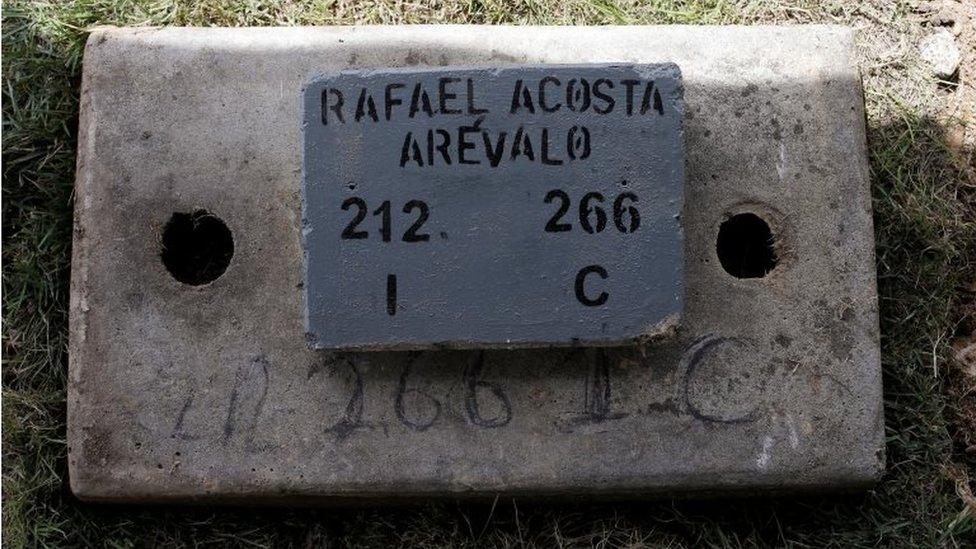
The stone provided by officials to mark the grave of Capt Rafael Acosta
Only close family members were present at the burial, which was watched over by members of the security forces.
Ms Pérez had been asking for her husband's body to be handed over to the family so that an independent forensic expert could carry out a post-mortem examination.
That request was never granted. The family also said that they had wanted to bury Capt Acosta in his hometown of Maracay, 130km (81 miles) west of where his body lies now.
What did the post-mortem reveal?
While the family was not allowed to take Capt Acosta's body away for examination, a post-mortem examination was carried out by officials.
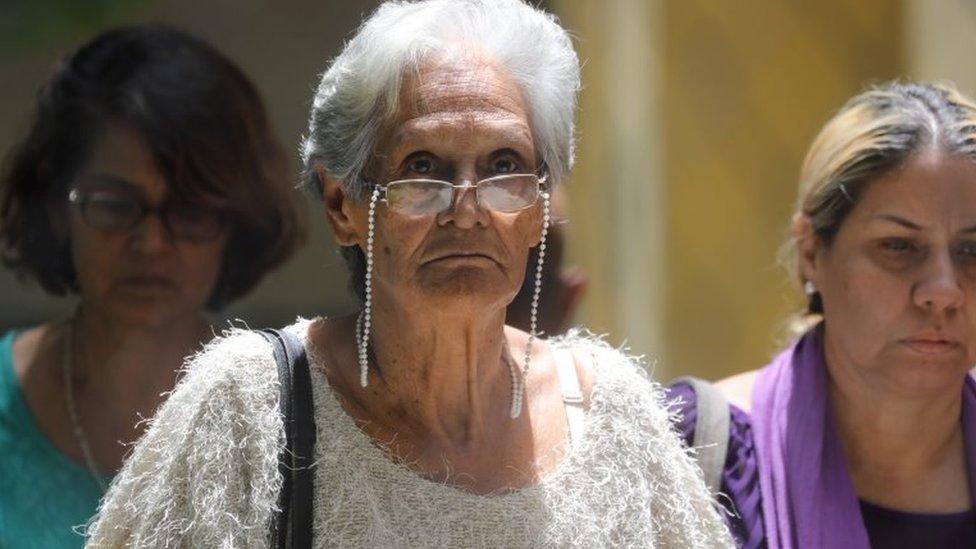
Capt Acosta's mother and other family members had wanted him to be buried in Maracay
Extracts of the forensic report were leaked to the press. They suggest the navy captain died of severe swelling of the brain caused by acute lack of oxygen.
The leaked report also suggested that Capt Acosta's body showed signs of having been subjected to extreme force and had suffered severe beatings and electrocution.
The full report has not been released.
What was he suspected of?
Capt Acosta had been accused of committing "grave acts of terrorism, treason and attempted assassination of the president".
Communications Minister Jorge Rodríguez said Capt Acosta had been part of a foiled plot to kill President Maduro, his wife Cilia Flores and the head of the government-run National Constituent Assembly, Diosdado Cabello.
According to Mr Rodríguez, Capt Acosta was tasked with blowing up the communication antennae at Fuerte Tiuna military base and placing explosives in a key tunnel and highway as well as breaking into the vault of the central bank to steal hundreds of rifles kept there.
The captain's death in custody caused an international outcry with the US state department blaming "Maduro's thugs and their Cuban advisers".
Venezuela crisis: The four countries interested in the presidential battle
- Published5 July 2019
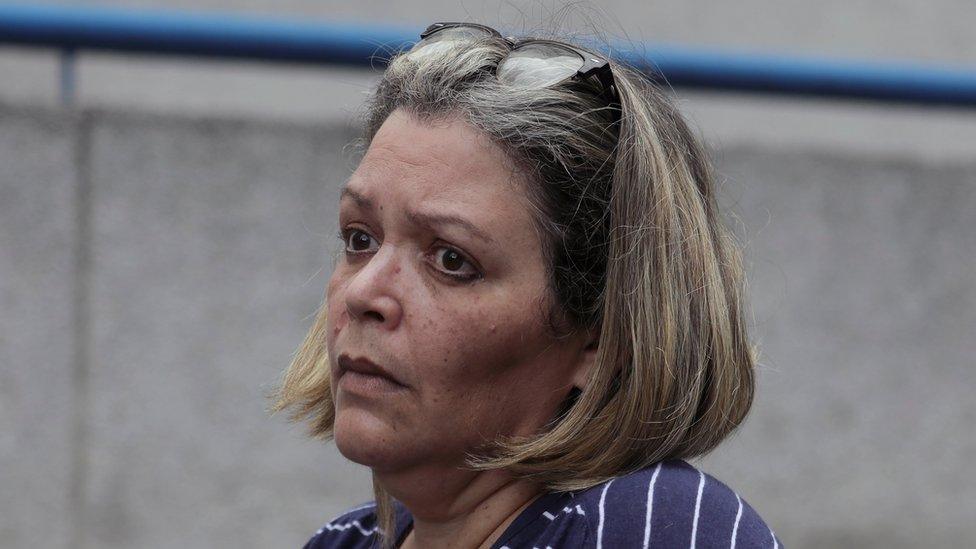
- Published5 July 2019
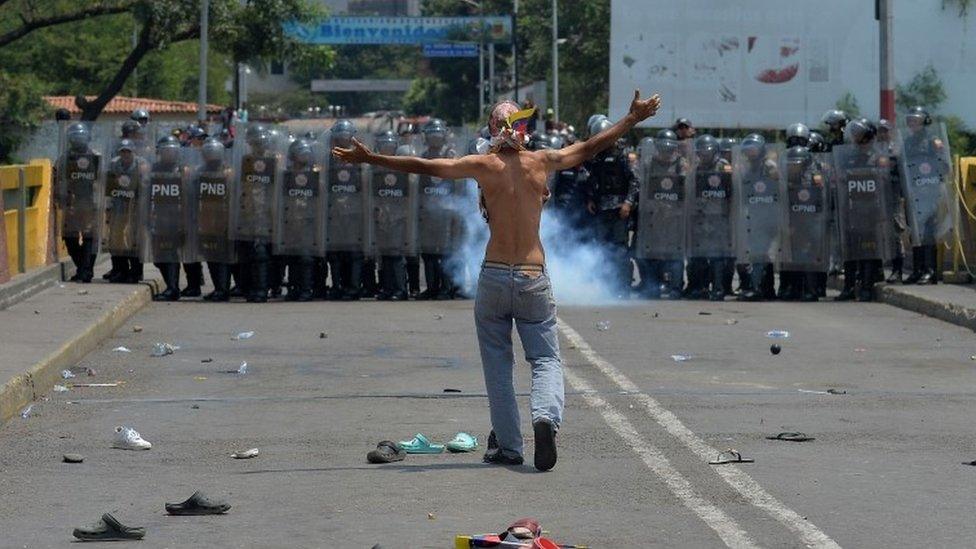
- Published1 July 2019

- Published24 June 2019
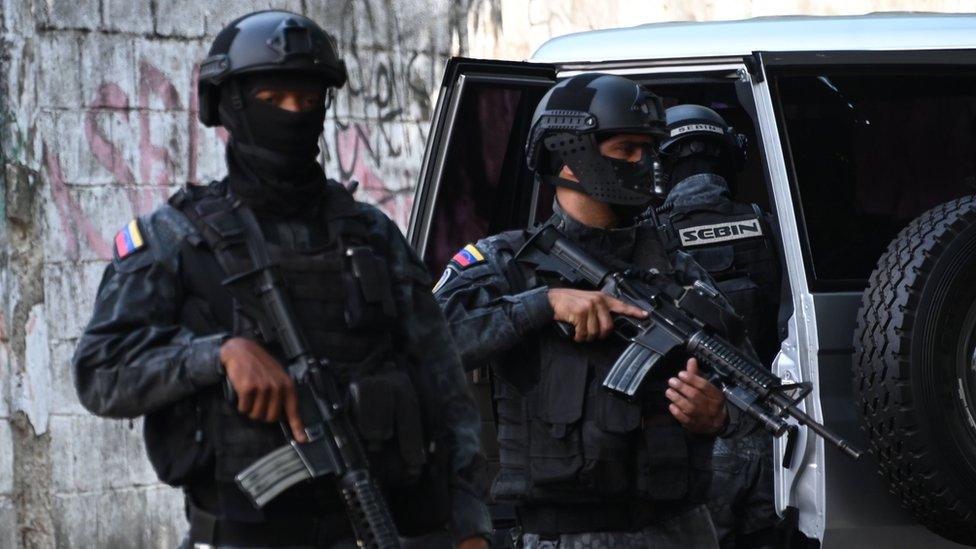
- Published28 June 2019
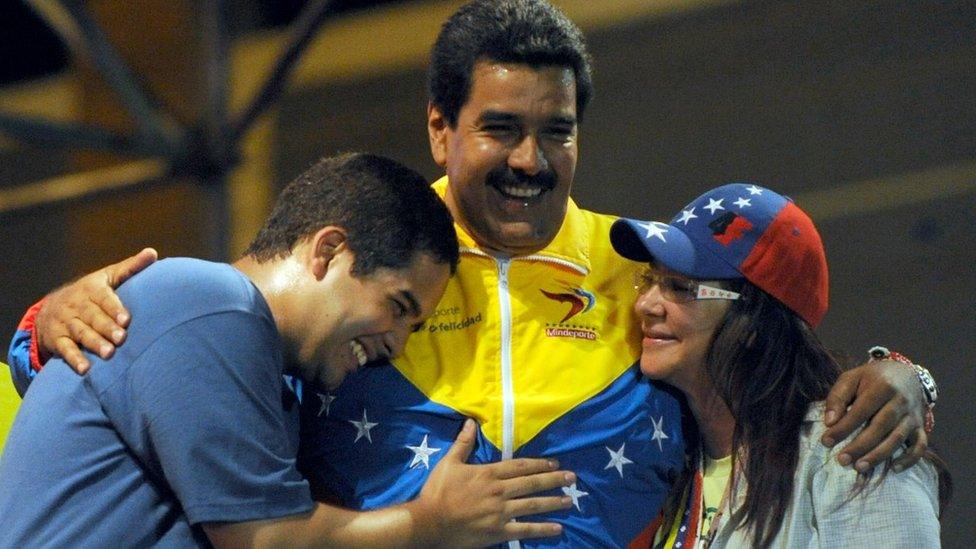
- Published27 June 2019
